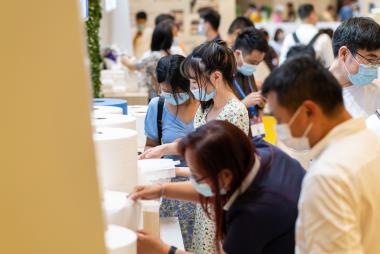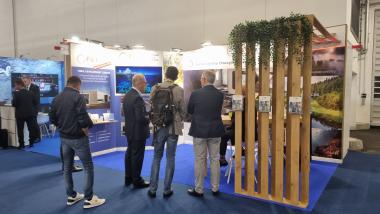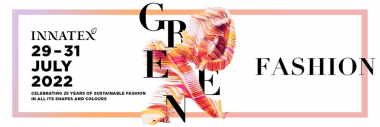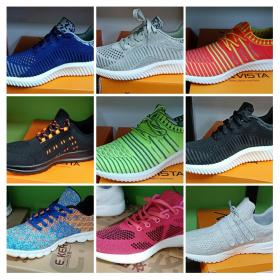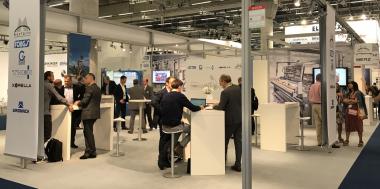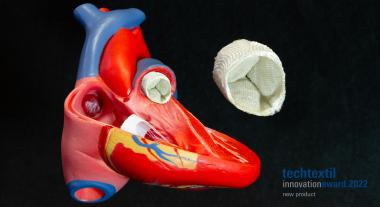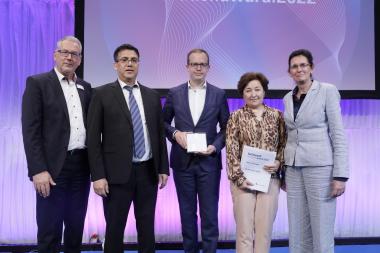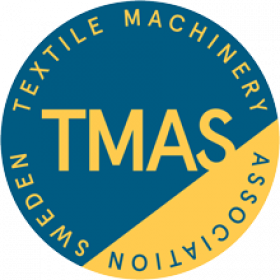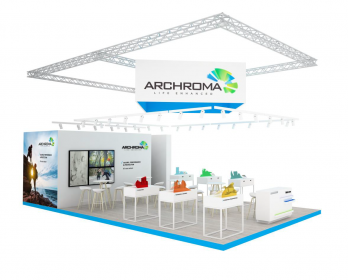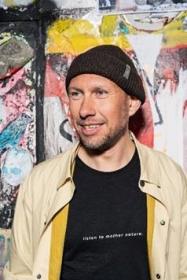Kreislaufwirtschaft auf der Heimtextil: Textiles Matter
Die Heimtextil Trend Preview 23/24 präsentierte zu Herbstbeginn Designkonzepte und Inspirationen für die textile Einrichtungsbranche. Mit „Textiles Matter“ will die Heimtextil 2023 Maßstäbe für die zukunftsorientierte und nachhaltige textile Einrichtung von morgen setzen.
Mit konzentrierter Analyse und Fachexpertise untersucht der Trend Council der Heimtextil, bestehend aus dem Studio FranklinTill (London), dem Stijlinstituut Amsterdam und der dänischen Agentur SPOTT Trends & Business, die Zukunft für den nationalen und internationalen Markt. Nachhaltigkeit und Kreislaufwirtschaft stehen dabei so stark wie nie zuvor im Fokus und setzen den Trend für die Saison 23/24.
Textilien sind aus dem Alltag nicht mehr wegzudenken. So vielfältig die Ansprüche der Nutzer*innen sind, so vielfältige sind auch die Einsatzzwecke der Materialien und ihre Herstellung. Dies stellt die internationale Industrie vor eine große Herausforderung. Die Textilindustrie bezieht ihre Rohstoffe aus vielen Quellen und nutzt zahlreiche Verfahren zur Herstellung einer unbegrenzten Vielfalt von Produkten. Dies bietet großes Potenzial für eine nachhaltige Weiterentwicklung. Die Heimtextil Trends zeigen Möglichkeiten auf, dieses Potenzial zu nutzen und nachhaltige Entwicklung zu fördern. Unter dem Motto „Textiles Matter“ werden Ansätze der Kreislaufwirtschaft vorgestellt, die dem Markt Impulse für eine nachhaltige Entwicklung liefern.
"In Anbetracht des ökologischen Notstands, in dem wir uns derzeit befinden, steht die Textilindustrie in der Verantwortung, ihre Prozesse zu überprüfen und zum Besseren zu verändern. Aus diesem Grund verfolgen wir bei dieser Ausgabe der Heimtextil Trends einen materialorientierten Ansatz und konzentrieren uns auf die Beschaffung, das Design und die Nachhaltigkeit von Materialien. Textiles Matter zeigt das Potenzial der Kreislaufwirtschaft auf und würdigt Designinitiativen, die schön, relevant und vor allem nachhaltig sind", erklärt Marta Giralt Dunjó von FranklinTill.
Anorganische Materialien wie Nylon, Polyester, Kunststoffe oder Metalle können im technischen Kreislauf ohne Qualitätsverlust recycelt und wiederverwendet werden. Organische Materialien wie Leinen oder Bast werden im biologischen Kreislauf wieder in die Natur zurückgeführt. Die vier Trend-Themen „Make and Remake“, „Continuous“, „From Earth“ und „Nature Engineered“ leiten sich daraus ab.
Make and Remake
Gebrauchte Materialien, Altbestände oder Stoffreste erhalten ein neues Leben. Dabei rückt die Ästhetik des Reparierens in den Fokus und wird als gezieltes Designelement des recycelten Produkts eingesetzt. Mit hellen und fröhlichen Farben und Techniken wie Überdrucken, Überfärben, Bricolage, Collage oder Patchwork entstehen neue und kreative Produkte. Überlagerte Farbmuster und Grafiken führen zu gewagten und maximalistischen, zugleich bewussten Designs.
Continuous
Das Trend-Thema Continuous beschreibt geschlossene Kreisläufe, in denen Materialien immer wieder zu neuen, abfallfreien Produkten recycelt werden. Vermeintliche Abfallstoffe werden getrennt und zu neuen Fasern, Verbundwerkstoffen und Textilien wiederaufbereitet. Synthetische sowie zellulosehaltige Garne werden somit abfallfrei produziert. Dank technisch fortgeschrittener Rückgewinnungsverfahren behalten die Materialien ihre ursprüngliche Qualität und Ästhetik. Zweckmäßigkeit, Minimalismus und Langlebigkeit bestimmen das Design der Continuous Produkte.
From Earth
Hier stehen die Natürlichkeit und der Einklang mit der Natur der organischen Materialien im Mittelpunkt. Natürliche Färbungen vermitteln Wärme und Weichheit. Unvollkommene Texturen, Abnutzungen und Unregelmäßigkeiten präsentieren eine ökologische und erdverbundene Ästhetik. Erdige und botanische Farbtöne, natürliche Variationen und haptischer Reichtum dominieren den Bereich From Earth. Unbearbeitete und rohe Oberflächen sowie ungebleichte Textilien, natürliche Farbstoffe betonen die Materialien in ihrem ursprünglichen Zustand.
Nature Engineered
Natürlichkeit wird neu interpretiert. Nature Engineered wertet organische Materialien wie Bast, Hanf, Leinen und Nesseln mit mechanischen Mitteln auf und perfektioniert diese. Modernste Techniken bereiten natürliche Textilien zu anspruchsvollen und intelligenten Produkten auf. Klare Linien und Formen, kombiniert mit weichen Beige- und Brauntönen kennzeichnen dieses Thema.
Die nachhaltigen und zukunftsweisenden Trends werden im Trend Space der Heimtextil, vom 10. bis 13. Januar 2023 in Frankfurt, inszeniert.
Messe Frankfurt Exhibition GmbH









